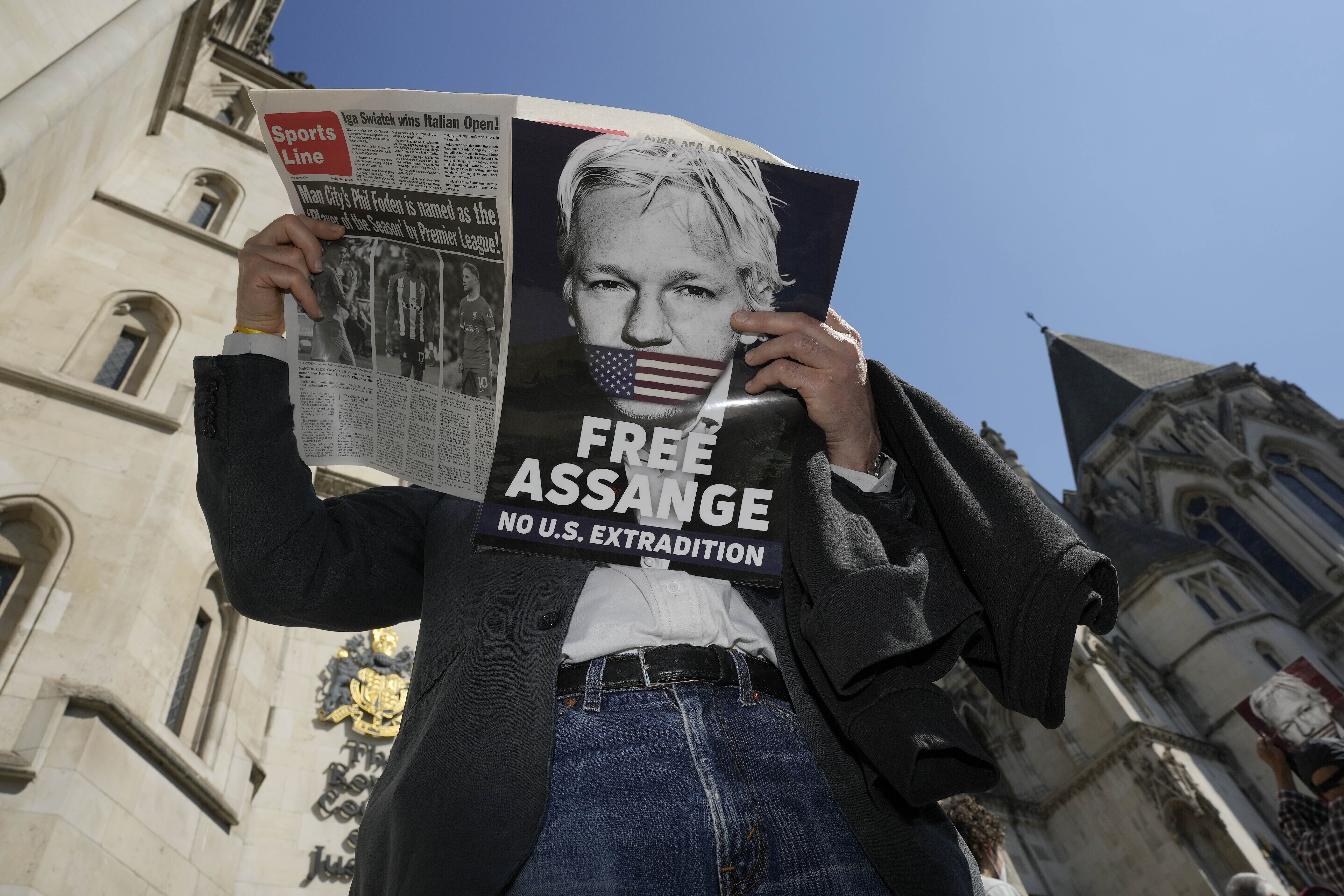Julian Assange, WikiLeaks founder, cuts plea deal to avoid US prison
He will be able to return to his home country of Australia.


WikiLeaks founder Julian Assange and the U.S. government have struck a deal to end his decade-plus legal odyssey and allow him to return to his home country of Australia this week.
Assange, whose website revealed American secrets about the war in Iraq and later released embarrassing emails about the Democratic Party during the 2016 election, is expected to plead guilty to a felony charge of conspiring to disseminate classified information.
Under the pact detailed in court filings made public Monday evening, he would be sentenced to just over five years in prison — but would be entitled to immediate release because that’s roughly how long he’s been jailed in England while fighting extradition to the U.S.
The case has been a diplomatic headache for the Biden administration, which has faced pressure from Australia, a key national-security ally, to end Assange’s years in legal limbo.
Adding another exotic twist to an already byzantine tale, Assange’s guilty plea to a single Espionage Act charge is set to take place Wednesday morning in U.S. District Court in the Northern Mariana Islands — a U.S. territory in the south Pacific about 2,000 miles north of Australia.
The unusual venue reflects Assange’s unwillingness to return voluntarily to the continental U.S., according to a letter Justice Department prosecutors posted on a court docket. The radical transparency activist harbors a deep distrust of the U.S. government. He and his allies have accused U.S. officials of plotting to have him killed with a drone.
The saga that led to Assange’s prosecution dates back to 2010, when an Army intelligence analyst, Private Chelsea Manning, leaked a vast trove of data to WikiLeaks including videos of deadly U.S. military airstrikes, hundreds of thousands of diplomatic cables and logs of U.S. military activity in Afghanistan and Iraq. Among the revelations posted online was video of a 2007 Apache helicopter attack by American forces in Baghdad that killed 11 people, including two Reuters journalists.
While the leaks of military and State Department records made Assange a controversial figure in the U.S. and a hero to many anti-war activists, the picture grew more complex in 2016 when his website released large volumes of emails from the Democratic National Committee and from a personal Gmail account of John Podesta, then the chairman of Hillary Clinton’s presidential campaign. Among other revelations, the stolen emails showed signs that the DNC had acted favorably toward Clinton during her primary against Bernie Sanders.
Many Democrats accused Assange of collaborating with Russian intelligence to undermine Clinton’s campaign. Assange denied the claim.
Assange appears to have been under criminal investigation in the U.S. since shortly after the 2010 leaks, but the first charges against him did not come until December 2017 in the form of a criminal complaint issued by the federal court in Alexandria, Virginia. It did not charge Assange with violating the Espionage Act, but with a pair of federal felonies most often charged in computer hacking or fraud cases.
Prosecutors secretly obtained an indictment of Assange in 2018 on the computer charge. Then, in 2019, a grand jury indictment was returned publicly against him on 18 felony charges, including for allegedly agreeing to aid Manning in cracking a password needed to access a secret U.S. government computer network. All but one of the counts stemmed from the Espionage Act, a law that prohibits unauthorized receipt or disclosure of information that could be used to harm the United States or aid a foreign nation.
Before the plea deal was struck, Assange, 52, faced a maximum possible sentence of 175 years in prison if convicted on all the charges, although defendants typically receive shorter sentences under federal guidelines.
Assange’s legal travails began long before American authorities brought charges against him. In 2010, sexual assault allegations were leveled at him in Sweden, and two years later, he sought asylum in London’s Ecuadorian embassy to avoid extradition to Sweden by British courts. He lived in the embassy for seven years.
In 2019, Assange was arrested and his asylum in the Ecuadorian mission was retracted. He was then sentenced to 50 weeks in British prison for skipping bail in 2012 in connection with the Swedish charges. Assange has been in British custody ever since while fighting the Justice Department’s efforts to extradite him to the United States. He was held at the high-security Belmarsh Prison in southeast London.
Assange’s battle against the U.S. charges dragged on for years, both in the U.K. courts and in public.
In 2022, five major media outlets — the New York Times, the Guardian, Le Monde, El Pais and Der Spiegel — called on the U.S. government to drop some criminal charges against Assange that accused him of breaking the law by publishing classified information, something many mainstream news outlets occasionally do without legal consequences.
Assange’s legal team did not respond to requests for comment. A Justice Department spokesperson had no immediate comment.
Assange, a computer programmer, founded WikiLeaks in 2006. The site uses anonymous online submissions to expose sensitive information about war, espionage and corruption.
Shortly after the first of Manning’s leaked materials began appearing on the site in 2010, the former Army intelligence analyst was arrested on military charges. She eventually pleaded guilty to some charges and went before a court martial on others. While Manning was acquitted of the most serious charge of aiding the enemy, she was sentenced to 35 years in prison for her other crimes.
Days before leaving office in 2017, President Barack Obama commuted Manning’s sentence, allowing her release after about seven years in custody.
Assange’s 62-month sentence under his deal would leave him having served about 10 months less than Manning, a U.S. citizen who was in the military and had signed agreements not to disclose classified information. And Assange’s sentence would be one month shorter than that of a prominent leaker convicted in recent years under the Espionage Act, National Security Agency analyst Reality Winner, who admitted to sending the online news outlet the Intercept a classified report on Russian hacking of voting databases.
In 2021, Yahoo News reported that, near the outset of President Donald Trump’s administration, officials drew up plans containing various options to deal with Assange that included kidnapping or assassinating him.
But Trump’s own attitude toward WikiLeaks and its promises of sweeping transparency was once far less hostile. “WikiLeaks, I love WikiLeaks!” he declared at a campaign rally in October 2016 as he waved a purloined email message in the air.












